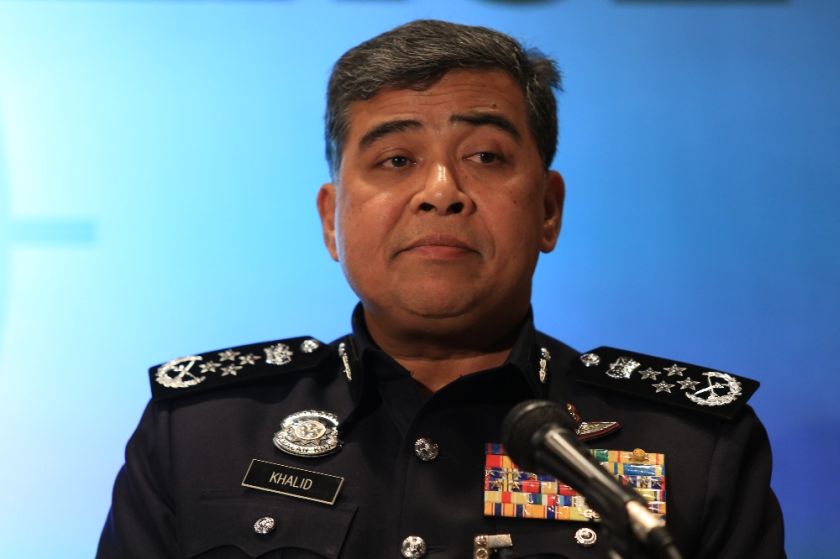KOTA KINABALU, May 20 — Malaysia may need to review its bilateral trade relations with Philippines in order to put more pressure on the Philippine government to curb terrorist activities from its southern rebels, especially cross-border kidnapping.
Inspector-General of Police Tan Sri Khalid Abu Bakar, in furthering his proposal to ban barter trade between Sabah’s east coast communities and southern Philippine residents, said it was more important to secure the country’s safety than its economic standing.
“Their people are threatening the safety of our people. We need to take serious action that will affect the relationship of the people like reviewing our trade relation with the Philippines. This includes considering breaking our economic and trade ties.
“Some may disagree with my proposal but I put our safety first,” he said, adding that the country is under continuous threat from these terrorist groups.
“Philippines also needs to teach these groups a lesson and send the message that it doesn’t pay to cause problems for us,” he said during a press conference at the state police headquarters here.
Local security forces have long faced criticism over numerous reports of armed intrusions on Sabah’s borders over the years.
The latest kidnapping occurred in Sandakan last Thursday, when four armed men raided the popular Ocean King Seafood Restaurant and took away a man and a woman.
Restaurant manager and co-owner Thien Nyuk Fun, 50, and patron Bernard Then Ted Fen, 39 were abducted during peak dinner hours are now believed to be held on a southern Philippines island while their kidnappers have demanded a “very large” ransom.
Khalid had on Monday said police wanted to propose that both legal and illegal barter trade be stopped as southern Filipinos involved in the illegal activities were capitalising on the situation to sneak in on the pretext of exchanging goods.
“They sneak in, pretending to be traders and lie low, hiding among the locals, until they get the green light from their informant to strike,” he said.
Sabah DAP vice chairman Chan Foong Hin yesterday objected to the barter trade ban, saying it accounted for a total trade value of RM150 million to RM300 million annually, which would hurt the economy and have adverse socioeconomic effects in the long run.
There are four ports in Sabah managing the centuries-old barter trade, namely Sandakan, Tawau, Kudat and Labuan. In 2012, the number of barter traders issued with the Seaman International Card (SIQ) was 18,388 with vessels involved numbering 1,768.
The SIQ has since been abolished and border control now require traders to have international passports or a seaman book from their respective countries before they are allowed to land in Sabah.
Residents of Western Mindanao prefer to purchase goods in Sabah, where commodities are cheap. For Tawi-Tawi (where Abu Sayyaf groups are reportedly based) residents, it is also easier to sail to Sabah than Zamboanga City.
He said banning the barter trade might result in a migration of Southern Filipinos to Sabah or worse, force them into piracy.
Meanwhile, Khalid said security measures, including the curfew imposed by the Eastern Sabah Security Command (Esscom) needed to be reviewed in light of the kidnapping.
“Personally, I am not satisfied with it (the curfew). As long as there continues to be these intrusions, I won’t be satisfied,” he said, adding that while there is a need for more security assets, it was no excuse.
Khalid later met with Esscom at its base in Lahad Datu to discuss more ways to strengthen the state’s security which will include reviewing its tactics and changing its boats and vessels during different times of the day.




















